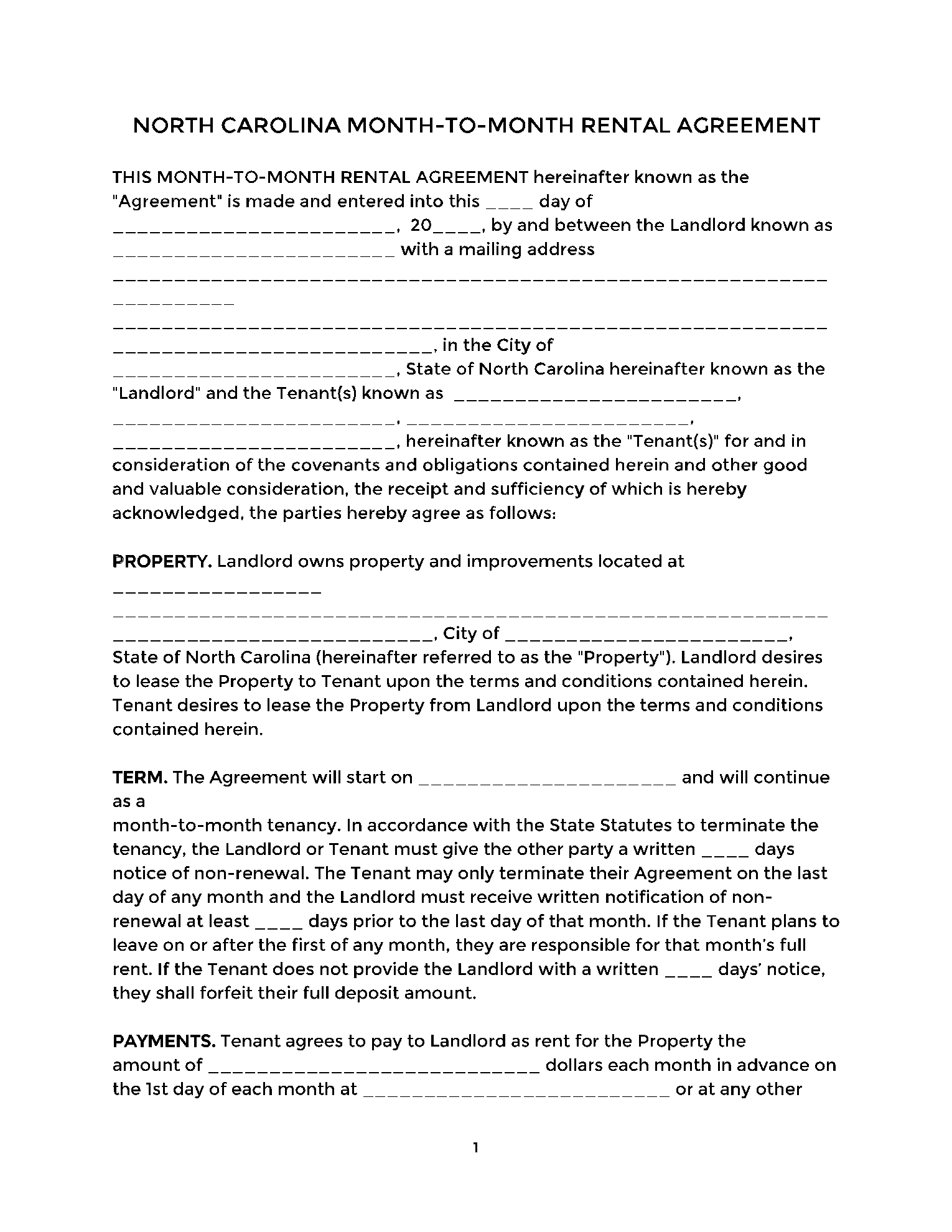There are so many things to pay attention to before making a North Carolina(NC) Lease Agreement. If you are done searching for a property and want to rent it out, you should create an NC residential lease agreement. If you are a tenant then the landlord will usually check the tenant’s credit, employment, and rental history using a rental application before authorizing an agreement.
North Carolina Lease Disclosures & Addendums
Federal, state, and local laws often need landlords to make disclosures of certain information and terms to tenants. Although these laws change from one location to another location, they typically want landlords to make the disclosures before tenants move into their property.
North Carolina requires landlords to disclose the following information:
- Details about security deposits (about the hold, interest, and return)
- Tenants’ powers and rights to be present at a move-out review of the rental property
- Details of landlord-tenant law, such as local rent control laws
- The status of the landlord and the person authorized to get legal papers and manage the property, such as a property manager
- Current damages to the rental property
- Presence of environmental and health risks, such as lead-based paint, bed bugs, and mold
Lease addendums are separate documents that landlords attach to an initial lease agreement. Landlords use them to write extra information that is not covered in the original lease. Be sure not to mix addendum with lease amendments, which are modifications made straight to the existing lease itself. While they complete a similar plan, amendments are usually applied wrongly to express the same thing as an addendum.
Common Residential Lease Addendums
- Pet Addendum: There’s so much to analyze when deciding whether to allow pets in your rental property.
- Smoking Addendum: If you declare that smoking is banned in the lease, you are allowed to make a smoke-free atmosphere on your property.
- Renovation/Landscaping Addendum: While renewing and landscaping are two different characters of the lease, they both come with similar gray spaces for landlords and tenants.
- Occupancy/Guests Addenda: If there will be guests and other people in your property who aren’t your tenants. Limiting the number of people that you allow in the property can protect the home from extra damage and help implement any fire-hazard requirements.
When Should I Use a Residential Lease Agreement in North Carolina?
North Carolina residential lease agreement contracts are used between a landlord and tenant for residential property. The document allows the contracted terms to be made about the monthly rental payment ($), security deposit, policies, utilities, and any other item to be agreed upon. Once the form is signed it is legally restrictive till the agreement's end date. If someone breaks the lease, either by the landlord or tenant, then the matter can go to small courts. If any of this type of dispute happens, then the lease is used and helps to find out who is right.
How to Fill the North Carolina Residential Lease and Rental Agreement?
North Carolina residential lease and rental agreement includes the following information to write:
- Basic contents of a rental agreement include Names of the landlord and tenant and/or their representatives.
- Summary of the property.
- Amount of rent and due dates for payment and late charges.
- Method of rent payment.
- Methods to end the agreement before the end date and charges if any.
- Amount of security deposit and the account where it is kept.
- Utilities provided by the landlord and if the landlord charges for any utilities. What will the charges be?
- Amenities in the property which the tenant is allowed to use such as a swimming pool, etc.
- Rules and regulations such as pet rules, noise rules, and penalties.
- Identification of parking open, including allocated parking spaces, if provided.
- How tenant repair requests are managed and methods for emergency requests.
Conclusion
You've read about lease disclosures and addendums, about the use of NC Residential lease agreements, and how to create them. These are the most basic and important factors to write about when creating an agreement. If you cannot locate your original tenancy lease, simply ask your landlord or rental management agency to send you a copy. You can also download, create and sign your lease agreement online with CocoDoc, a free PDF editing tool. Specify your NC lease agreement according to your period of stay.
